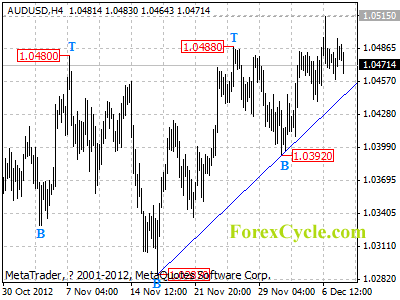By TraderVox.com
 Tradervox.com (Dublin) – The 17-nation currency fell to its lowest in two weeks against the greenback as Mario Monti, Italian Prime Minister indicated that he was considering quitting as the Italian leader. This boosted concerns that the change of government will derail the measures to solve the debt crisis in the region. The euro dropped for the third day against the yen prior to European Union leaders’ meeting this week. The meeting is expected to deal with the measures and road map to be taken to overhaul the euro region. The Japanese currency was up against most of its major peers as safety demand gripped the market. The Australian dollar dropped against the yen as China trade data showed slower growth than forecasted.
Tradervox.com (Dublin) – The 17-nation currency fell to its lowest in two weeks against the greenback as Mario Monti, Italian Prime Minister indicated that he was considering quitting as the Italian leader. This boosted concerns that the change of government will derail the measures to solve the debt crisis in the region. The euro dropped for the third day against the yen prior to European Union leaders’ meeting this week. The meeting is expected to deal with the measures and road map to be taken to overhaul the euro region. The Japanese currency was up against most of its major peers as safety demand gripped the market. The Australian dollar dropped against the yen as China trade data showed slower growth than forecasted.
According to Jane Foley, who is a currency strategist in London at Rabobank International, the political environment in Italy is adding to the existing uncertainty in Europe. She added that the uncertainty may persist for some time which will be negative for the euro in the coming months. According to a report offered by the national President Giorgion Napolitano’s office, the Prime Minister, Mario Monti, is try to convince the coalition government to pass budget legislation before he hands in his resignation.
According to Imre Speizer, who is a currency strategist at Westpac Banking Corp in Auckland, the euro is mostly likely going to drop in the near term. He also noted that the reports from the region indicating that Monti might quit impacts the euro negatively as it provides evidence of political instability in the region. The euro dropped by 0.2 percent against the dollar to trade at $1.2906 at the start of trading in London today after the pair dropped to 1.2877, the weakest level since November 23. The 17-nation currency was 0.4 percent down against the yen, trading at 106.27 yen. The Japanese currency gained against the US dollar by 0.2 percent to 82.35 yen per dollar.
Disclaimer
Tradervox.com is not giving advice nor is qualified or licensed to provide financial advice. You must seek guidance from your personal advisors before acting on this information. While we try to ensure that all of the information provided on this website is kept up-to-date and accurate we accept no responsibility for any use made of the information provided. Opinions expressed at Tradervox.com are those of the individual authors and do not necessarily represent the opinion of Tradervox.com or its management.
Article provided by TraderVox.com
Tradervox.com is a Forex News Portal that provides real-time news and analysis relating to the Currency Markets.
News and analysis are produced throughout the day by our in-house staff.
Follow us on twitter: www.twitter.com/tradervox

 Tradervox.com (Dublin) – U.S. house speaker John Boehner and president Barrack Obama haven’t reached to a conclusion with three weeks left to avert more than $600 billion in spending cuts and tax increases. Obama insisted on the high income tax rate for high earners, while Boehner insisted on the spending cuts.
Tradervox.com (Dublin) – U.S. house speaker John Boehner and president Barrack Obama haven’t reached to a conclusion with three weeks left to avert more than $600 billion in spending cuts and tax increases. Obama insisted on the high income tax rate for high earners, while Boehner insisted on the spending cuts.

